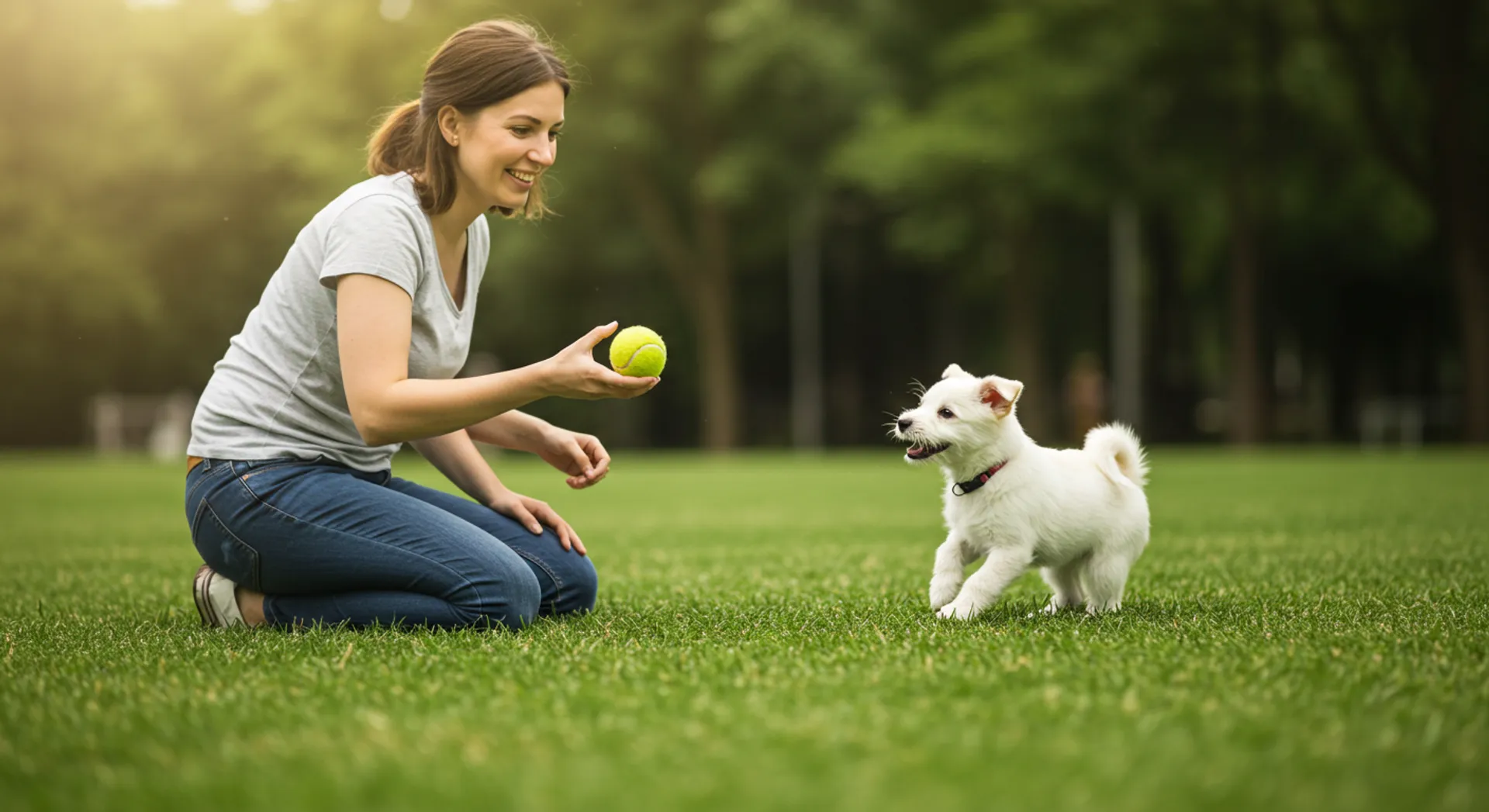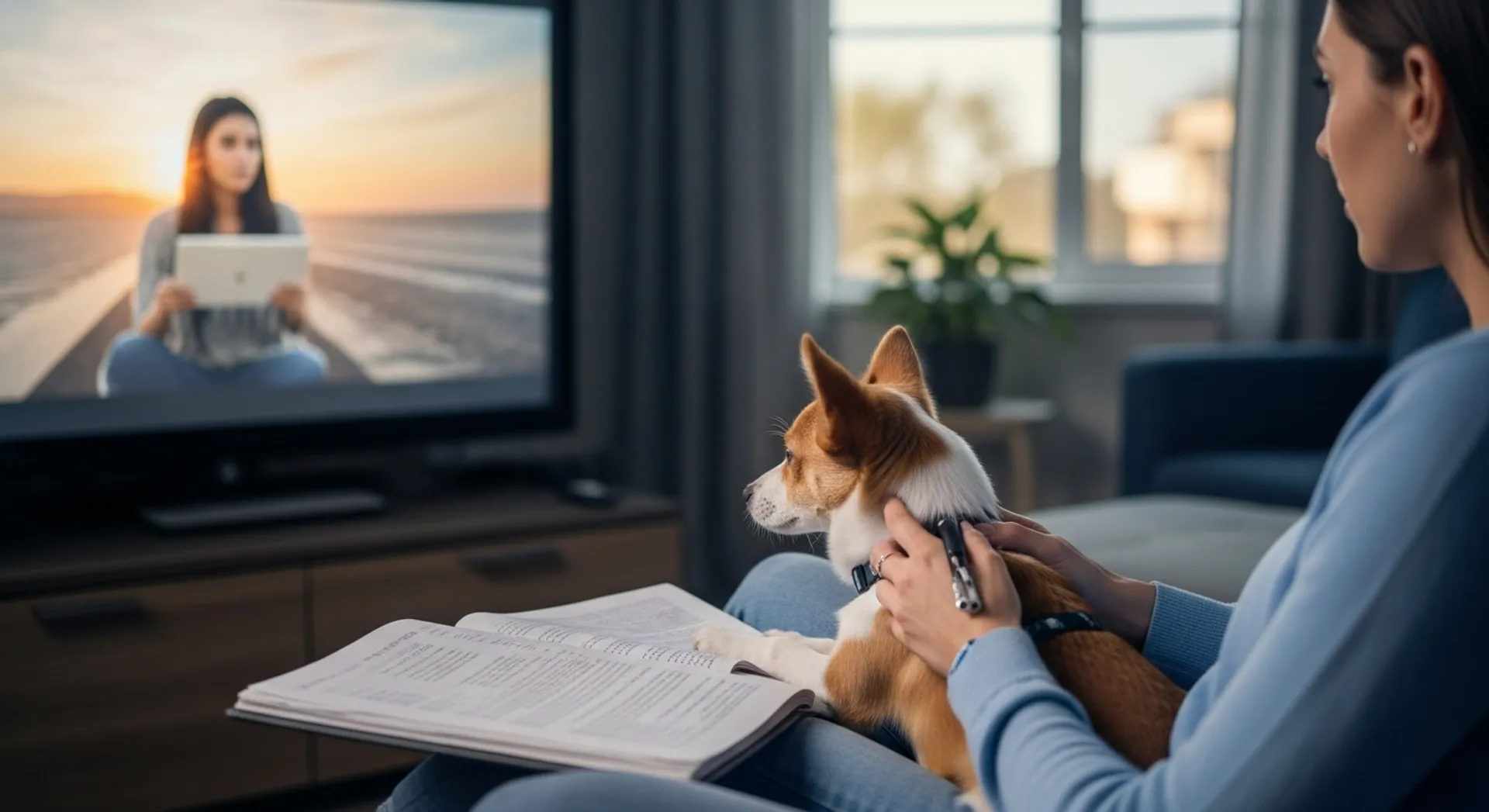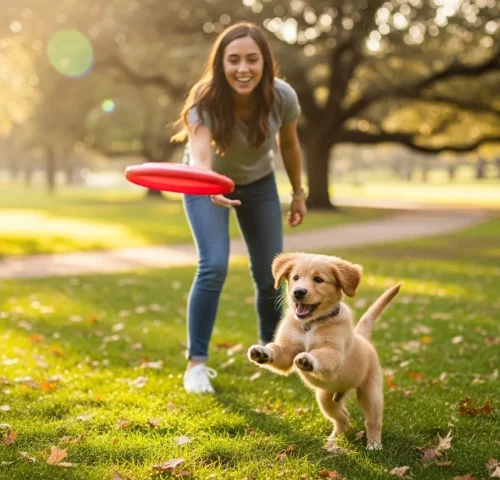Why Fun Activities Matter
Boredom can lead to destructive behaviors such as chewing, digging, or excessive barking. Regular activities provide an outlet for energy and stimulate your dog’s mind, making them happier and healthier.
The Benefits of Play
- Exercise: Keeps your dog physically fit and at a healthy weight.
- Mental Stimulation: Challenges your dog’s brain, preventing boredom.
- Bonding: Playtime strengthens the relationship between you and your pup.
- Confidence Building: Dogs gain self-assurance by mastering games and tasks.
Classic Games for Dogs
Some games never get old. They’re simple, fun, and easy to do anywhere.
Fetch
A timeless favorite, fetch provides cardio exercise and strengthens recall skills. Use balls, frisbees, or safe toys designed for dogs. Vary the location — backyards, fields, or even hallways indoors.
Tug-of-War
This game builds strength and teaches impulse control. Always supervise and use sturdy, dog-safe toys. Teach your pup a “drop it” command to keep the game under control.
Hide-and-Seek
Hide from your dog and call their name, rewarding them when they find you. This builds recall skills and provides mental stimulation. You can also hide treats or toys around the house for a variation.
Outdoor Adventures
Dogs love exploring the world beyond the home. Outdoor activities add variety and adventure to their lives.
Hiking
Take your pup on nature trails. Hiking provides exercise while exposing your dog to new scents and sights. Always bring water and check if the trail is dog-friendly.
Swimming
Many dogs enjoy water play. Swimming is a low-impact workout, especially good for senior dogs or those with joint issues. Always supervise near water and consider a canine life jacket for safety.
Dog Parks
Dog parks provide opportunities for socialization and free play. They’re a great way for dogs to learn manners with other pups. However, monitor interactions to ensure positive experiences.
Indoor Fun for Rainy Days
When the weather doesn’t cooperate, indoor activities keep your pup entertained.
Puzzle Toys
Food puzzles challenge your dog to think and work for treats. They provide mental stimulation while keeping dogs occupied for longer periods.
Training Games
Use rainy days to teach new tricks or commands. Dogs enjoy the mental challenge and the rewards that come with it.
DIY Obstacle Courses
Set up chairs, cushions, or broomsticks to create tunnels and jumps. Guide your pup through with treats and encouragement for a fun agility session at home.
Creative Bonding Activities
Not all fun requires physical exertion. Some activities focus more on emotional connection and shared experiences.
Doggy Playdates
Invite friends with dogs for supervised play. Socializing with other dogs builds confidence and teaches social skills.
Movie Night with Your Dog
Yes, dogs can enjoy a cozy night in, too! Snuggle up with your pup and watch a dog-themed movie. Add some dog-safe treats for them while you enjoy popcorn.
Photo Sessions
Capture fun memories by taking photos of your dog. It’s an activity that engages them while giving you lasting keepsakes. You can even create a scrapbook or share moments online.
Seasonal Activities
Change your routine with seasonal fun to keep things fresh.
Summer
Set up a kiddie pool, go for early morning walks to beat the heat, or freeze treats in ice cubes for a cool snack.
Fall
Play in leaf piles, go for scenic walks, or dress your dog in a cozy sweater for pumpkin patch outings.
Winter
Enjoy snowball fetch, indoor training, or short walks in the crisp air. Always watch for signs of frostbite in sensitive paws.
Spring
Take advantage of mild weather with longer hikes, garden play, or outdoor training sessions.
Safety Tips for Play and Activities
Fun should always be safe. Here are some things to keep in mind:
- Check toys regularly for wear and tear.
- Avoid overly strenuous activity in hot or cold weather.
- Provide fresh water during and after play.
- Supervise interactions with other dogs, especially in group settings.
Signs Your Dog Needs More Fun
If your dog shows destructive behavior, excessive barking, or restlessness, it may be a sign they need more stimulation. Adding even 15 minutes of extra play can make a big difference.
Final Thoughts
Playtime is more than just fun — it’s essential for your dog’s overall well-being. By incorporating a mix of physical, mental, and emotional activities, you’ll keep your pup engaged and happy. Try different games, explore outdoor adventures, and create bonding moments that strengthen your relationship. For more ideas, explore our Dog Fun & Activities category here on The Dog Blog.




